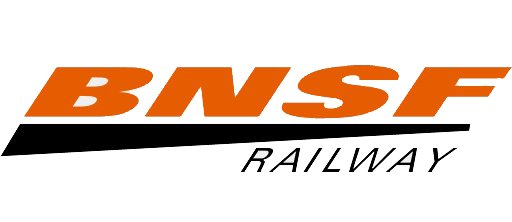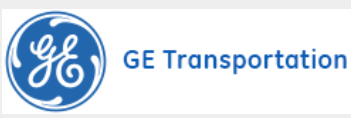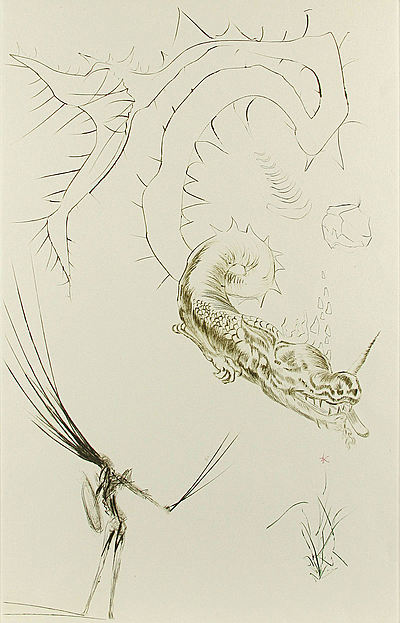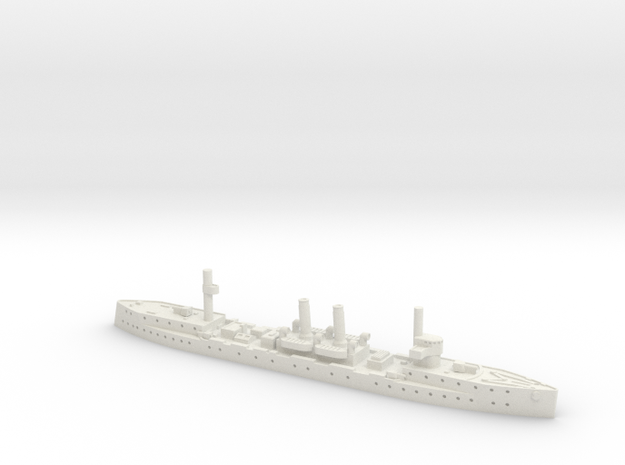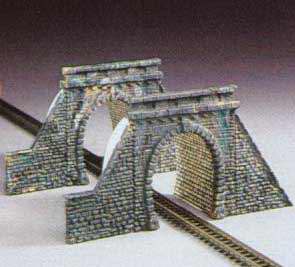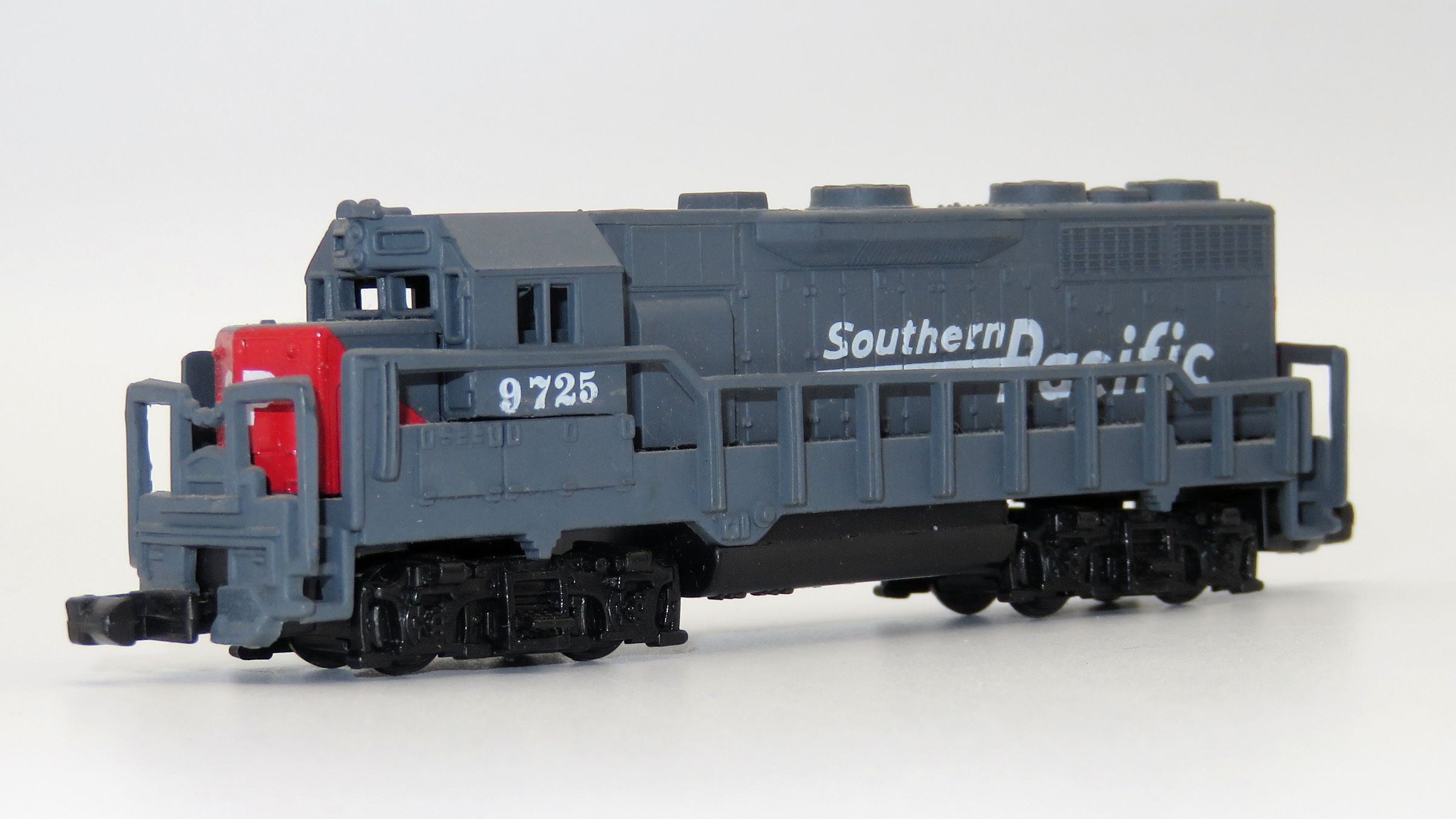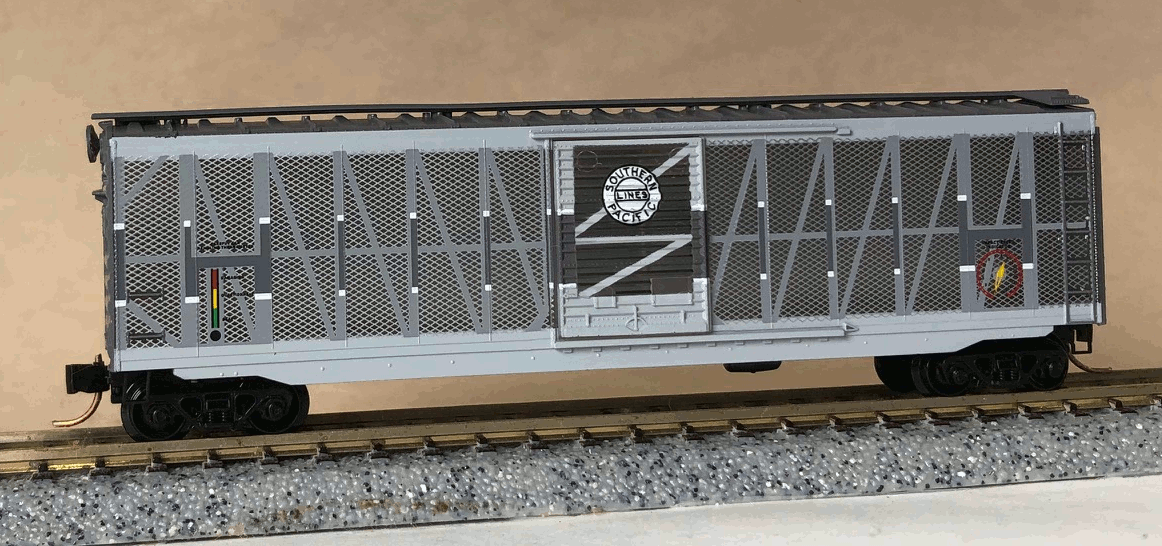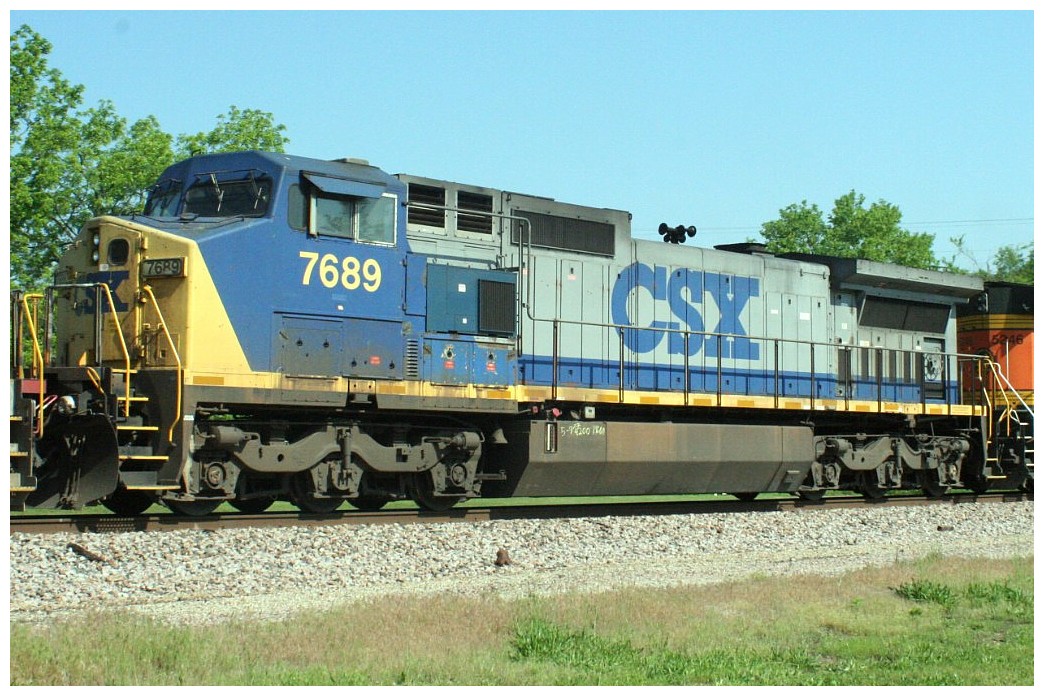Model Information: The Dash-8-32, Dash-8-40B, Dash-8-40BW, Dash-8-40C and Dash-8-40CW all share the same mechanism and only differ in the shell details. This series of models was introduced in 2002.
These models are excellent runners and feature the standard attributes of a modern Atlas Diesel: blackened metal low-profile wheels, a split frame, dual flywheels, accumate couplers, and LED lighting. I have run over 40 cars on a single Dash-8. I have a CSX model in my personal collection and frequently run it with long consists at NTRAK meets.
These models are excellent runners and feature the standard attributes of a modern Atlas Diesel: blackened metal low-profile wheels, a split frame, dual flywheels, accumate couplers, and LED lighting. I have run over 40 cars on a single Dash-8. I have a CSX model in my personal collection and frequently run it with long consists at NTRAK meets.
DCC Information: Available as DCC-Ready or DCC-equipped with a NCE N12A0 decoder.
Prototype History: The Dash 8 Series is a line of diesel-electric freight locomotives built by GE Transportation Systems. It replaced the Dash 7 Series in the mid-1980s, and was superseded by the Dash 9 Series in the mid-1990s. All models of the Dash 8 Series are powered by a 16- or 12-cylinder, turbocharged, GE 7FDL 4-stroke diesel engine.
The design of the Dash 8 Series is based upon that of the Dash 7 Series. The biggest changes introduced during the production of the Dash 8 Series were the first use of a microprocessor-equipped engine control unit in a diesel locomotive, and the adoption of a modular system in the construction of the vehicle body. The Dash 8 locomotive bodies were assembled from several modules, creating a combination to fit the length of the chassis. On models with a traditional narrow short hood, the part of the equipment room immediately behind the cab is taller than the top of the rounded cab roof, giving those models a distinctive appearance. On all models, that part of the equipment room houses the cooling fans for the dynamic braking system. Traction motors of Dash 8 locomotives were powered by direct current.
The "W" suffix used for some models indicates the then-optional wide-nose "North American" safety cab.
The GE Dash 8-32BHW (or Dash 8-32BWH) is a variant built with Head End Power (HEP) and a wide cab for Amtrak service.
From Wikipedia
More on Dash 8-32B on American-Rails.com
The design of the Dash 8 Series is based upon that of the Dash 7 Series. The biggest changes introduced during the production of the Dash 8 Series were the first use of a microprocessor-equipped engine control unit in a diesel locomotive, and the adoption of a modular system in the construction of the vehicle body. The Dash 8 locomotive bodies were assembled from several modules, creating a combination to fit the length of the chassis. On models with a traditional narrow short hood, the part of the equipment room immediately behind the cab is taller than the top of the rounded cab roof, giving those models a distinctive appearance. On all models, that part of the equipment room houses the cooling fans for the dynamic braking system. Traction motors of Dash 8 locomotives were powered by direct current.
The "W" suffix used for some models indicates the then-optional wide-nose "North American" safety cab.
The GE Dash 8-32BHW (or Dash 8-32BWH) is a variant built with Head End Power (HEP) and a wide cab for Amtrak service.
From Wikipedia
More on Dash 8-32B on American-Rails.com
Road Name History: The BNSF Railway (reporting mark BNSF) is one of the largest freight railroad networks in North America, second to the Union Pacific Railroad (UP) (its primary competitor for Western U.S. freight), and is one of seven North American Class I railroads. It has 48,000 employees, 32,500 miles (52,300 km) of track in 28 states, and over 8,000 locomotives. It has three transcontinental routes that provide high-speed links between the western and eastern United States. BNSF trains traveled over 169 million miles in 2010, more than any other North American railroad.[2] The BNSF and UP have a duopoly on all transcontinental freight rail lines in the Western U.S. and share trackage rights over thousands of miles of track.
According to corporate press releases, the BNSF Railway is among the top transporters of intermodal freight in North America. It also hauls bulk cargo. For instance, the railroad hauls enough coal to generate roughly ten percent of the electricity produced in the United States.
Headquartered in Fort Worth, Texas, the railroad is a wholly owned subsidiary of Berkshire Hathaway Inc.
The creation of BNSF started with the formation of a holding company, the Burlington Northern Santa Fe Corporation on September 22, 1995. This new holding company then purchased the Atchison, Topeka and Santa Fe Railway (often called the "Santa Fe") and Burlington Northern Railroad, and formally merged the railways into the Burlington Northern and Santa Fe Railway on December 31, 1996. On January 24, 2005, the railroad's name was officially changed to "BNSF Railway," using the initials of its original name.
In 1999, Burlington Northern Santa Fe and the Canadian National Railway announced their intention to merge and form a new corporation entitled North American Railways to be headquartered in Montreal, Canada. The United States' Surface Transportation Board (STB) placed a 15-month moratorium on all rail mergers, which ended this merger.
On November 3, 2009, Warren Buffett's Berkshire Hathaway announced it would acquire the remaining 77.4 percent of BNSF it did not already own for $100 per share in cash and stock - a deal valued at $44 billion. The company is investing an estimated $34 billion in BNSF and acquiring $10 billion in debt. On February 12, 2010, shareholders of Burlington Northern Santa Fe Corporation voted in favor of the acquisition.
According to corporate press releases, the BNSF Railway is among the top transporters of intermodal freight in North America. It also hauls bulk cargo. For instance, the railroad hauls enough coal to generate roughly ten percent of the electricity produced in the United States.
Headquartered in Fort Worth, Texas, the railroad is a wholly owned subsidiary of Berkshire Hathaway Inc.
The creation of BNSF started with the formation of a holding company, the Burlington Northern Santa Fe Corporation on September 22, 1995. This new holding company then purchased the Atchison, Topeka and Santa Fe Railway (often called the "Santa Fe") and Burlington Northern Railroad, and formally merged the railways into the Burlington Northern and Santa Fe Railway on December 31, 1996. On January 24, 2005, the railroad's name was officially changed to "BNSF Railway," using the initials of its original name.
In 1999, Burlington Northern Santa Fe and the Canadian National Railway announced their intention to merge and form a new corporation entitled North American Railways to be headquartered in Montreal, Canada. The United States' Surface Transportation Board (STB) placed a 15-month moratorium on all rail mergers, which ended this merger.
On November 3, 2009, Warren Buffett's Berkshire Hathaway announced it would acquire the remaining 77.4 percent of BNSF it did not already own for $100 per share in cash and stock - a deal valued at $44 billion. The company is investing an estimated $34 billion in BNSF and acquiring $10 billion in debt. On February 12, 2010, shareholders of Burlington Northern Santa Fe Corporation voted in favor of the acquisition.
Brand/Importer Information: In 1924 Stephan Schaffan, Sr. founded the Atlas Tool Company in Newark, New Jersey. In 1933 his son, Stephan Schaffan, Jr., came to work for his father at the age of sixteen. Steve Jr. built model airplanes as a hobby and frequented a local hobby shop. Being an enterprising young man, he would often ask the owner if there was anything he could do to earn some extra spending money. Tired of listening to his requests, the hobby-store owner threw some model railroad track parts his way and said, "Here, see if you can improve on this".
In those days, railroad modelers had to assemble and build everything from scratch. Steve Jr. created a "switch kit" which sold so well, that the entire family worked on them in the basement at night, while doing business as usual in the machine shop during the day.
Subsequently, Steve Jr. engineered the stapling of rail to fiber track, along with inventing the first practical rail joiner and pre-assembled turnouts and flexible track. All of these products, and more, helped to popularize model railroading and assisted in the creation of a mass-market hobby. The budding entrepreneur quickly outgrew the limitations of a basement and small garage operation. Realizing they could actually make a living selling track and related products, Steve and his father had the first factory built in Hillside, New Jersey at 413 Florence Avenue in 1947. On September 30, 1949, the Atlas Tool Company was officially incorporated as a New Jersey company.
In 1985, Steve was honored posthumously for his inventions by the Model Railroad Industry Association and was inducted into the Model Railroad Industry Hall of Fame in Baltimore, Maryland. In addition, Steve was nominated and entered into the National Model Railroad Association Pioneers of Model Railroading in 1995.
In the early 1990s, the Atlas Tool Company changed its name to Atlas Model Railroad Company, Inc.
In those days, railroad modelers had to assemble and build everything from scratch. Steve Jr. created a "switch kit" which sold so well, that the entire family worked on them in the basement at night, while doing business as usual in the machine shop during the day.
Subsequently, Steve Jr. engineered the stapling of rail to fiber track, along with inventing the first practical rail joiner and pre-assembled turnouts and flexible track. All of these products, and more, helped to popularize model railroading and assisted in the creation of a mass-market hobby. The budding entrepreneur quickly outgrew the limitations of a basement and small garage operation. Realizing they could actually make a living selling track and related products, Steve and his father had the first factory built in Hillside, New Jersey at 413 Florence Avenue in 1947. On September 30, 1949, the Atlas Tool Company was officially incorporated as a New Jersey company.
In 1985, Steve was honored posthumously for his inventions by the Model Railroad Industry Association and was inducted into the Model Railroad Industry Hall of Fame in Baltimore, Maryland. In addition, Steve was nominated and entered into the National Model Railroad Association Pioneers of Model Railroading in 1995.
In the early 1990s, the Atlas Tool Company changed its name to Atlas Model Railroad Company, Inc.
Item created by: Bryan on 2016-07-16 13:03:28. Last edited by Alain LM on 2020-12-04 06:30:31
If you see errors or missing data in this entry, please feel free to log in and edit it. Anyone with a Gmail account can log in instantly.
If you see errors or missing data in this entry, please feel free to log in and edit it. Anyone with a Gmail account can log in instantly.




